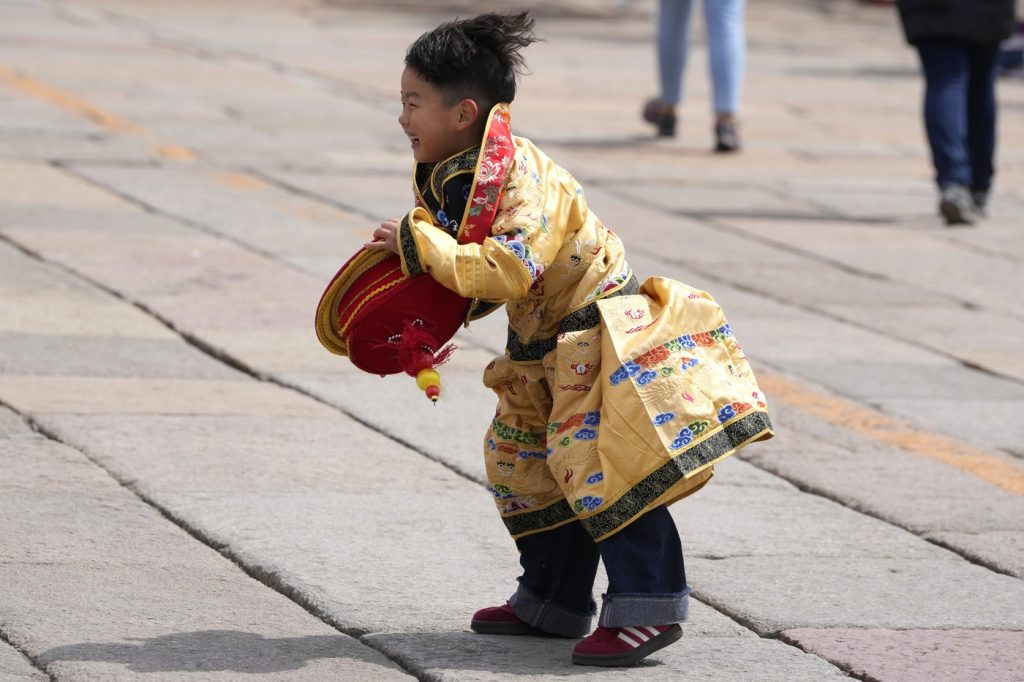BEIJING (AP) – On Saturday, high winds and the imminent threat of sandstorms led to widespread disruptions across Beijing, resulting in the cancellation of hundreds of flights and the closure of public parks. The extreme weather conditions pummeled the Chinese capital, toppling numerous trees that crushed cars and caused damage to older homes throughout the city.
By 2:00 p.m., Beijing's two major international airports, Beijing Capital International Airport and Daxing International Airport, had canceled a staggering total of 693 flights. Authorities issued warnings of more severe weather expected to affect not only Beijing but also the northern regions and coastal areas of China. Other parts of the country experienced cancellations of flights and trains, as some areas registered winds of up to 148 kilometers per hour (92 miles per hour), marking some of the strongest winds the country has seen in over 75 years.
In response to the hazardous conditions, major attractions like the Universal Studios theme park were closed at least through Sunday, alongside historic sites such as the Forbidden City, Summer Palace, and Temple of Heaven. Additionally, football matches and various outdoor events were suspended to ensure public safety amid the precarious weather.
The high winds and associated sandstorms originate from China’s arid northern regions, dominated by the Gobi and Taklamakan Deserts, which are surrounded by grasslands, mountains, and forests. This has resulted in decades-long efforts by the Chinese government to mitigate the effects of sandstorms, particularly in Beijing, which lies on the edge of a vast arid zone. Such sandstorms can dramatically reduce visibility to near zero levels, infiltrate buildings and clothing, and induce significant discomfort, particularly affecting the eyes, nose, and ears of the populace.
The severe weather has had a profound impact on daily life in Beijing. Residents faced challenges while navigating the streets, with some individuals struggling against the strong winds. Moreover, for tourists aiming to experience the renowned sights of the city, the cancellation of various attractions meant altering their plans due to safety concerns. While many took shelter from the winds in indoor locations, those outside were seen grappling with the powerful gusts.
The implications of high winds and sandstorms resonate deeply in a city like Beijing, where air quality issues and environmental concerns are already pressing. As authorities work to address the immediate effects of this extreme weather, questions arise regarding long-term strategies to manage both the environmental impacts and the safety of residents and visitors alike.










